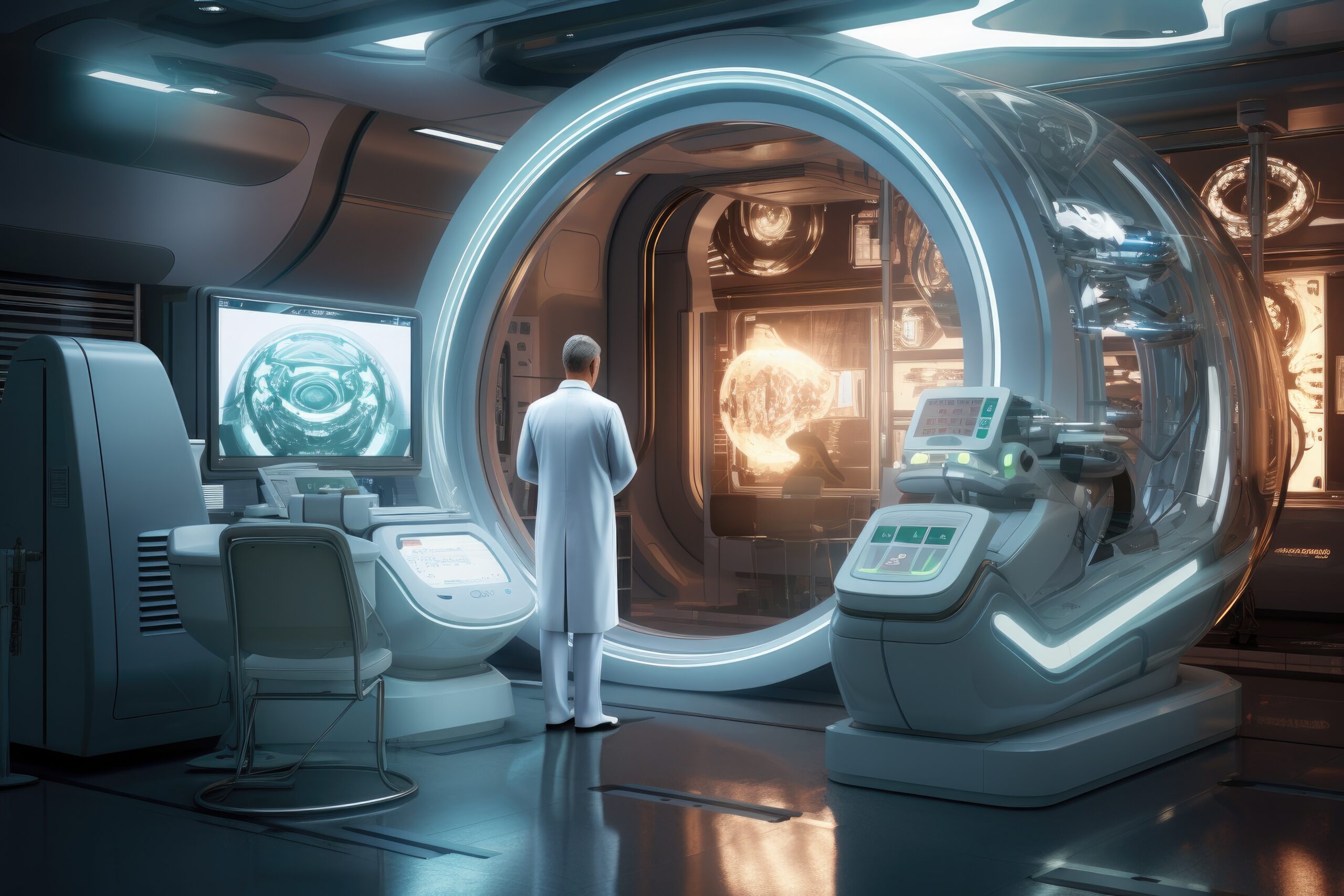Table of Contents
Artificial intelligence and healthcare
The integration of artificial intelligence trends in healthcare is rapidly transforming the industry, bringing unprecedented advancements in diagnostics, treatment, and patient care. With innovations ranging from AI-powered diagnostics to precision medicine, these trends are reshaping the way healthcare is delivered. This article explores the most impactful artificial intelligence trends in healthcare and their role in improving global health outcomes.

1. AI Diagnostics: Transforming Early Disease Detection
AI-powered tools are revolutionizing diagnostics by identifying diseases earlier and more accurately than ever before. These systems analyze medical data, such as imaging scans and patient histories, to detect abnormalities with remarkable precision.
- Example: Qure.ai uses AI to analyze chest X-rays and CT scans, identifying conditions such as tuberculosis and stroke faster than traditional methods.
AI diagnostics not only reduce diagnostic errors but also significantly speed up the process, allowing patients to receive timely treatment.
2. Precision Medicine: Personalized Care Powered by AI
One of the most significant artificial intelligence trends in healthcare is the rise of precision medicine. AI enables personalized treatment plans by analyzing genetic, environmental, and lifestyle factors unique to each patient.
- Example: Tempus uses AI to analyze genomic data and match cancer patients with the most effective therapies.
This trend is paving the way for a future where medicine is no longer “one-size-fits-all” but uniquely designed for individual patients.
3. AI in Medical Imaging: Enhancing Diagnostic Accuracy
Medical imaging is another area where AI is making a substantial impact. AI algorithms can analyze scans like X-rays, MRIs, and CTs to detect diseases, often with greater accuracy than human radiologists.
- Example: Aidoc provides AI solutions for radiologists, detecting critical findings such as brain hemorrhages and pulmonary embolisms in real time.
By enhancing efficiency and reducing diagnostic errors, AI in medical imaging is becoming a cornerstone of modern healthcare.
4. AI in Drug Discovery: Accelerating Innovation
Drug discovery, traditionally a time-consuming and costly process, is being revolutionized by AI. Machine learning algorithms analyze vast datasets to identify potential drug candidates and predict their efficacy, drastically reducing development timelines.
- Example: Insilico Medicine used AI to identify a potential drug for idiopathic pulmonary fibrosis in less than 18 months—a process that usually takes years.
This trend is not only expediting drug development but also making treatments more affordable and accessible.
5. Virtual Health Assistants: Redefining Patient Interaction
AI-powered virtual assistants are enhancing patient engagement and reducing the workload on healthcare providers. These assistants offer health advice, appointment scheduling, and medication reminders, improving the overall patient experience.
- Example: Babylon Health’s AI chatbot provides instant symptom checks and health recommendations, enabling patients to understand their conditions before consulting a doctor.
Virtual health assistants are bridging the gap between patients and providers, making healthcare more accessible and convenient.
6. Predictive Analytics: Anticipating Health Risks
Predictive analytics is one of the most promising artificial intelligence trends in healthcare, allowing providers to anticipate and address health risks before they become severe. AI models analyze patient data to identify patterns, enabling proactive interventions.
- Example: The Cleveland Clinic uses AI to predict the likelihood of heart failure in patients, helping doctors take preventive action.
By shifting the focus from reactive to preventive care, predictive analytics is improving patient outcomes and reducing healthcare costs.
7. AI in Surgical Procedures: Precision and Safety
AI is transforming surgery by enhancing precision, reducing human error, and improving patient outcomes. AI-powered robotic systems assist surgeons in performing complex procedures with unparalleled accuracy.
- Example: The da Vinci Surgical System uses AI to assist in minimally invasive surgeries, such as prostatectomies and hysterectomies.
As AI continues to advance, autonomous surgical systems could become a reality, further revolutionizing the field.
8. AI for Operational Efficiency: Streamlining Workflows
Hospitals and healthcare systems are using AI to optimize operational workflows, reduce wait times, and improve resource allocation.
- Example: Olive AI automates administrative tasks, such as insurance claims processing and patient record updates, saving time and resources.
These tools are helping healthcare organizations operate more efficiently, allowing providers to focus on patient care.
9. Remote Patient Monitoring: Extending Care Beyond Hospitals
AI-powered remote monitoring tools are enabling continuous care for patients with chronic conditions or those recovering from surgeries.
- Example: Livongo Health uses AI to provide personalized coaching for patients with diabetes, analyzing real-time data from connected devices.
Remote patient monitoring is especially crucial in managing chronic diseases and reducing hospital readmissions.
10. AI in Mental Health: Breaking Barriers
Mental health is benefiting significantly from AI, with tools that provide support and therapy for individuals facing emotional challenges.
- Example: Woebot uses AI to deliver cognitive-behavioral therapy through an interactive chatbot, offering 24/7 support.
These technologies are making mental health care more accessible and reducing the stigma associated with seeking help.
Challenges and Ethical Considerations
Despite its transformative potential, the adoption of artificial intelligence trends in healthcare faces several challenges:
- Data Privacy: Protecting sensitive patient data while complying with regulations like HIPAA and GDPR.
- Bias in Algorithms: Ensuring AI models are trained on diverse datasets to avoid biased healthcare outcomes.
- Regulatory Hurdles: Obtaining approval for AI tools from regulatory bodies can be a lengthy process.
Addressing these challenges is essential to unlocking the full potential of artificial intelligence in healthcare.
The Future of Artificial Intelligence and Healthcare
The future of artificial intelligence trends in healthcare is bright, with innovations focusing on:
- AI-powered preventive care to identify risks before symptoms appear.
- AI-integrated wearable devices for continuous health monitoring.
- Blockchain-backed AI systems to enhance data security and interoperability.
As AI technologies evolve, they promise to make healthcare more efficient, personalized, and accessible, ultimately improving global health outcomes.
Are you in need of financial services for your business? If so, DAC has a variety of financial services to choose from. We hope you will find our services helpful.
https://www.davidallencapital.com/kristi